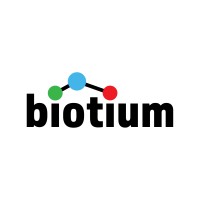HLA-DRA Monoclonal / PE / 169-1B5.2
Product Details
| Description | Mouse Monoclonal anti-MHC-II (HLA-DRA) (169-1B5.2) - | |
|---|---|---|
| Conjugate | PE | |
| Clone | 169-1B5.2 | |
| Target Species | Bovine, Feline, Human | |
| Applications | FC, IF | |
| Supplier | Biotium | |
| Catalog # | Sign in to view product details, citations, and spectra | |
| Size | ||
| Price | ||
| Antigen | ||
| Host | ||
| Isotype |
About HLA-DRA
HLA-DRA is one of the HLA class II alpha chain paralogues. This class II molecule is a heterodimer consisting of an alpha and a beta chain, both anchored in the membrane. This molecule is expressed on the surface of various antigen presenting cells such as B lymphocytes, dendritic cells, and monocytes/macrophages, and plays a central role in the immune system and response by presenting peptides derived from extracellular proteins, in particular, pathogen-derived peptides to T cells. The alpha chain is approximately 33-35 kDa and its gene contains 5 exons. Exon 1 encodes the leader peptide, exons 2 and 3 encode the two extracellular domains, and exon 4 encodes the transmembrane domain and the cytoplasmic tail. DRA does not have polymorphisms in the peptide binding part and acts as the sole alpha chain for DRB1, DRB3, DRB4 and DRB5. [provided by RefSeq, Aug 2020]
HLA-DRA is one of the HLA class II alpha chain paralogues. This class II molecule is a heterodimer consisting of an alpha and a beta chain, both anchored in the membrane. This molecule is expressed on the surface of various antigen presenting cells such as B lymphocytes, dendritic cells, and monocytes/macrophages, and plays a central role in the immune system and response by presenting peptides derived from extracellular proteins, in particular, pathogen-derived peptides to T cells. The alpha chain is approximately 33-35 kDa and its gene contains 5 exons. Exon 1 encodes the leader peptide, exons 2 and 3 encode the two extracellular domains, and exon 4 encodes the transmembrane domain and the cytoplasmic tail. DRA does not have polymorphisms in the peptide binding part and acts as the sole alpha chain for DRB1, DRB3, DRB4 and DRB5. [provided by RefSeq, Aug 2020]
About PE
Phycoerythrin (PE, R-PE) is a red-emitting fluorescent protein-chromophore complex that can be excited the 488-nm blue, 532-nm green, or 561-nm yellow-green laser with increasing efficiency and captured with a 586/14 nm bandpass filter. PE has an excitation peak at 565 nm and an emission peak at 578 nm. PE is 240kD in size and has an extinction coefficient of ~2x10^6 which makes it one of the brightest fluorophores available and a potent donor upon which to build tandem fluorophores with longer Stoke's Shifts.
Phycoerythrin (PE, R-PE) is a red-emitting fluorescent protein-chromophore complex that can be excited the 488-nm blue, 532-nm green, or 561-nm yellow-green laser with increasing efficiency and captured with a 586/14 nm bandpass filter. PE has an excitation peak at 565 nm and an emission peak at 578 nm. PE is 240kD in size and has an extinction coefficient of ~2x10^6 which makes it one of the brightest fluorophores available and a potent donor upon which to build tandem fluorophores with longer Stoke's Shifts.
Experiment Design Tools
Panel Builders
Looking to design a Microscopy or Flow Cytometry experiment?
Validation References
Reviews & Ratings
| Reviews |
|---|
Looking for more options?
433 HLA-DRA antibodies from over 19 suppliers available with over 43 conjugates.





